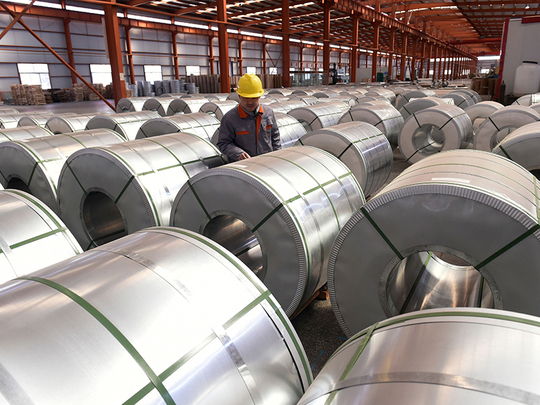
Hong Kong: President Donald Trump’s barrage of tariff threats have left China’s Xi Jinping with a tricky balance to strike. He’s got to show he’s ready to retaliate against US trade threats while demonstrating China’s commitment to opening up.
The Chinese president’s first chance to hit back in person comes in a speech Tuesday at the Boao Forum for Asia — China’s answer to Davos — on the tropical island of Hainan.
Besides reassuring the hundreds of foreign investors present that US protectionism won’t produce the same in the world’s second-largest economy, he must deliver a strong warning about letting the tariff disputes escalate into a trade war.
“You’ve got to push back and defend yourself in some way and at the same time say, ‘We are still open for business,” ‘ said Fraser Howie, co-author of the book Red Capitalism, who has two decades of experience in China’s financial markets. “The argument can be: ‘How do we not respond, if America is placing tariffs on us?” ‘
Xi set out his defence of globalisation at the real World Economic Forum in Davos last year just days before Trump took office promising to protect the US from “other countries making our products, stealing our companies, and destroying our jobs.” After an initial honeymoon with Xi, Trump has renewed his China attacks, threatening to pile on as much as $150 billion of tariffs on the country’s goods.
Read the latest on China-US trade tension as Trump threatens more tariffs
The levies represent an unprecedented challenge to Xi, who can’t afford an economic downturn that fuels unrest or to look weak after securing Communist Party backing last month to rule indefinitely. China in recent days has pledged retaliatory tariffs that would hit politically sensitive US regions and vowed to fight “to the end, and at any cost.”
Still, Xi is expected to emphasise the benefits of doing business with China and may announce reduced foreign-investment restrictions to mark the 40th anniversary of the reforms that launched the country’s economic boom.
“Xi’s Boao speech will reiterate China’s firm support for globalisation, compliance with World Trade Organisation rules and its commitment for opening up,” said He Weiwen, deputy director of the Centre for China and Globalization in Beijing and a former Commerce Ministry official.
Credibility gap
Yet Xi must also overcome a credibility gap after years of Chinese promises to free up the economy were followed by more centralised control and state support for local companies. Pledges to open up sectors such as financial services have been made before — but often such pledges have been made only after domestic players already dominate.
Top Chinese trading partners, such as the European Union and Japan, share Trump’s concerns about market access, even if they disagree with his tariff tactics. The trade spat has put new pressure on Xi to counter the US narrative during the speech, which will be attended by Philippine President Rodrigo Duterte, Singaporean Prime Minister Lee Hsien Loong, and the International Monetary Fund Managing Director Christine Lagarde.
“It’s possible that he will continue the generic general promises of liberalisation,” said Scott Kennedy, a China scholar at the Washington-based Center for Strategic and International Studies. “But he could try to finally be quite specific and forward leaning and try to pop the American bubble by making a variety of changes that open up Chinese markets.”












